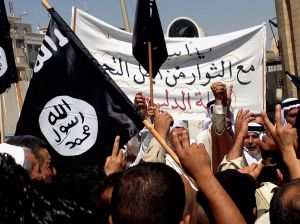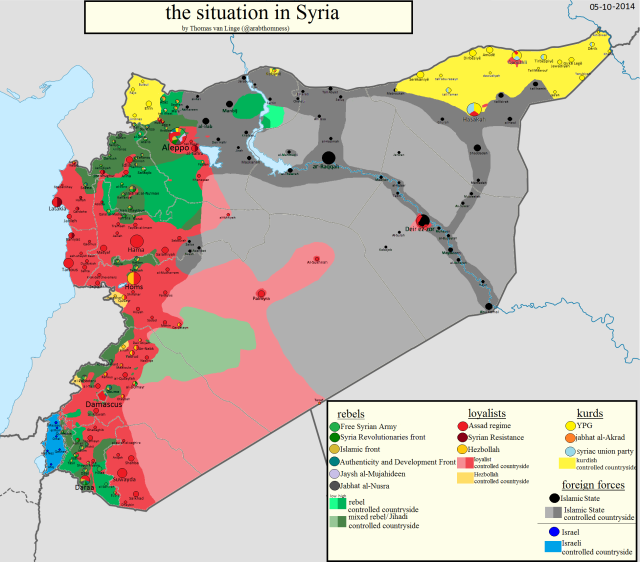ISIS captures three districts of Syrian border town, continues advance

Islamic State has today continued its advance into Kobane, the Syrian town near the Turkish border, after capturing three eastern districts yesterday.
IS has been fighting for Kobane since mid-September, but yesterday two black IS banners were seen flying on the hills at the town's eastern edge.
However, their progress has not gone unhindered. The Kurds, who took control of Kobane in 2012, have been among the most successful in staving off the advance of IS – both in Syria and northern Iraq.
But struggling to match the weapon capabilities of the Islamist militants, one Kurdish fighter resorted to desperate measures on Sunday when she blew herself up in order to kill IS fighters.
Deilar Kanj Khamis, whose military name was Arin Mirkan, killed at least 27 members of IS in her suicide mission.
The Kurdish forces, YPK, said in a statement that all their fighters would become suicide bombers if it meant they could stop IS. "If necessary, all our female and male fighters will become Arin. The attacks by [IS] against Kobane will not be allowed to achieve their goals," the YPK statement said.
US-led air strikes have reportedly killed scores of IS fighters in the region in recent days. But today the Iranian government criticised the "passivity of the international community".
As a border crossing with Turkey, Kobani is a strategic region, and this is not the first time that it has been fought over. IS and other Islamist militant groups in Syria have wanted to capture the town since August 2013.

For IS, it has particular attraction, as it is the last remaining area of resistance in north-eastern Syria (marked by the yellow area in the map above).
Yesterday, the Turkish Prime Minister Ahmet Davutoglu told CNN: "We will do everything possible to help the people of Kobane because they are our brothers and sisters."
But the Turks and Kurds are not the most natural allies. Not long ago they were fighting against each other. Now the Turks are being asked to offer asylum to many of the 160,000 Syrians who have fled the region.
Even so, Davutoglu said Turkey would be prepared to put boots on the ground in Syria, on the condition that "others do their own part". The necessary conditions for this help include the support of the international community to defend the Turkish border after IS – meaning removing the threat posed by Assad.
In Iraq, Canon Andrew White, the vicar St George's Baghdad, left for Jerusalem on October 5 and has decided not to return.
"I am not going back to Baghdad now so I will concentrate more of my effort on Gaza and Palestine that is what I feel G-d wants me to do," he wrote on Facebook. "I love the Palestinians just as much as I do the Israelis and they so need our help."
White added that he had been advised to leave by the Archbishop of Canterbury Justin Welby given his high profile and his support for Israel.
One Chaldean priest in Erbil summed up the position of Christians in the Middle East, saying in an interview with the National Post: "What we are living is the last chapter of an ancient story."











